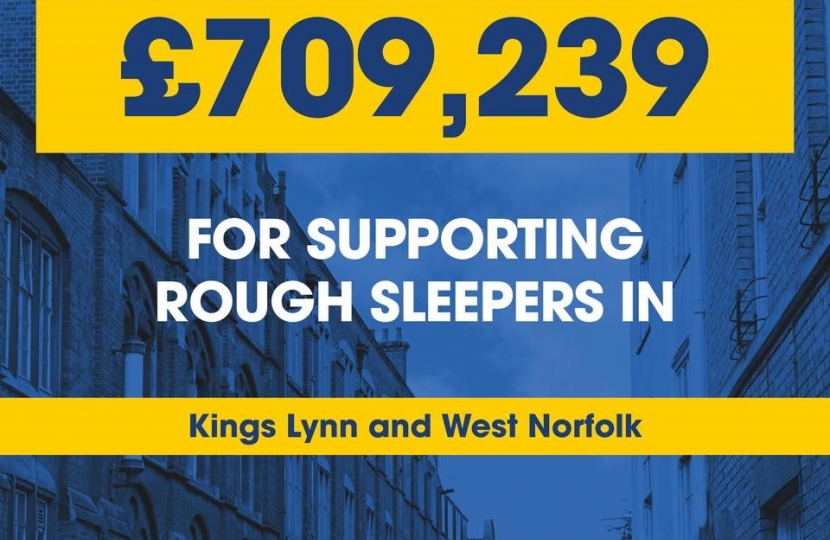Over £150 million has been made available by the Ministry of Housing, Communities, and Local Government across England to provide a long term place to live by March 2021 for some of the most vulnerable in society.
This will enable people who sleep rough, or at risk of sleeping rough, to be rehoused in secure, long-term accommodation providing some of the most vulnerable in society with the opportunity to rebuild their lives.
In total, North West Norfolk has been granted over £700,000. These funds will cover two main projects:
- Up to Six self-contained flats, to be provided by Broadland Housing, to be used as Housing First, a model for those with complex housing, health and social care needs. This model successfully supports people in the most severely entrenched cycles of homelessness.
- The lease of 10 self-contained move-on flats, by partner Broadland Housing, to be used for rough sleepers with lower needs but who need to move on from hostels. This in turn would free up valuable hostel accommodation for other rough sleepers.
Welcoming the announcement, James said -
“When Covid-19 hit the Borough council, Broadland Housing, Purfleet Trust, Night Shelter, Freebridge, and other partners worked together to help to get people off the streets and into safe accommodation.
Now we need to further action to help eradicate rough-sleeping and I met the Minister earlier this month to champion this bid.
It will help people in West Norfolk to turn around their lives with longer term accommodation through the Housing First model that provides vital additional support, as well as other flats.”
In March the government launched the ‘Everyone In’ campaign to house rough sleepers in safe accommodation, helping to protect thousands of lives during the pandemic.
By September over 29,000 vulnerable people had been supported, with over 10,000 in emergency accommodation and nearly 19,000 provided with settled accommodation or move on support.
Taken together, government spending on rough sleeping and homelessness this year is over £700 million.
Read more here.




